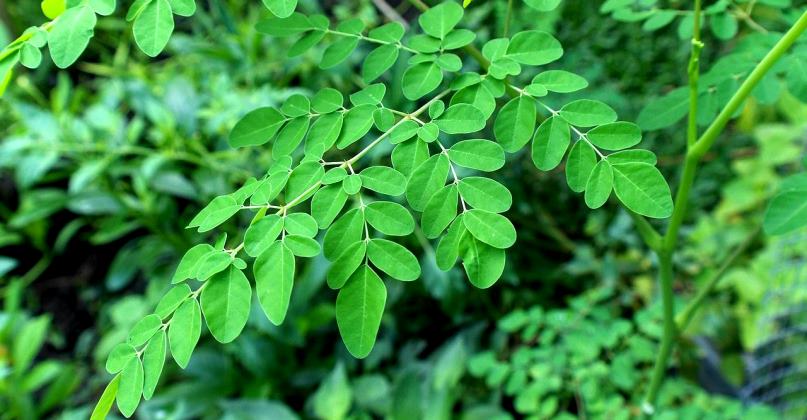Moringa

Here are some key features and uses of moringa:
- Nutritional Value: Moringa leaves are highly nutritious and contain a variety of vitamins, minerals, and antioxidants. They are particularly rich in vitamin C, vitamin A, potassium, calcium, and iron. Moringa leaves are often consumed as a vegetable and are considered a good source of nutrients, especially in regions where access to fresh produce is limited.
- Medicinal Uses: Moringa has a long history of traditional medicinal use. Different parts of the tree, including the leaves, seeds, flowers, and roots, are used for various health purposes. It has been traditionally used to treat conditions such as inflammation, infections, diabetes, and digestive issues.
- Antioxidant Properties: Moringa is known for its antioxidant compounds, which can help protect cells from damage caused by oxidative stress. Antioxidants are important for overall health and may contribute to reducing the risk of chronic diseases.
- Anti-Inflammatory Effects: Some studies suggest that moringa has anti-inflammatory properties that can help alleviate inflammation-related issues in the body.
- Potential Anti-Diabetic Benefits: Moringa may have a positive effect on blood sugar levels, which has led to research on its potential role in managing diabetes. However, more scientific research is needed to establish its effectiveness.
- Water Purification: Moringa seeds contain proteins that can help clarify water by attracting particles and bacteria, making it an inexpensive and natural method for water purification in some regions.
- Edible Parts: Almost all parts of the moringa tree are edible and can be consumed in various ways. Moringa leaves are commonly used in cooking, similar to spinach or other leafy greens. The immature green pods (drumsticks) are used in curries and stews. Moringa oil is extracted from the seeds and is used in cooking and skincare products.
- Supplements: Moringa supplements, including powdered leaf supplements and capsules, have gained popularity as a way to incorporate its nutritional benefits into one’s diet.



Leave a Reply